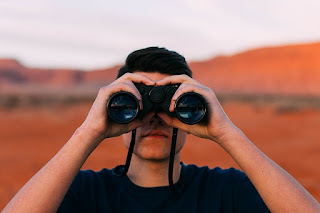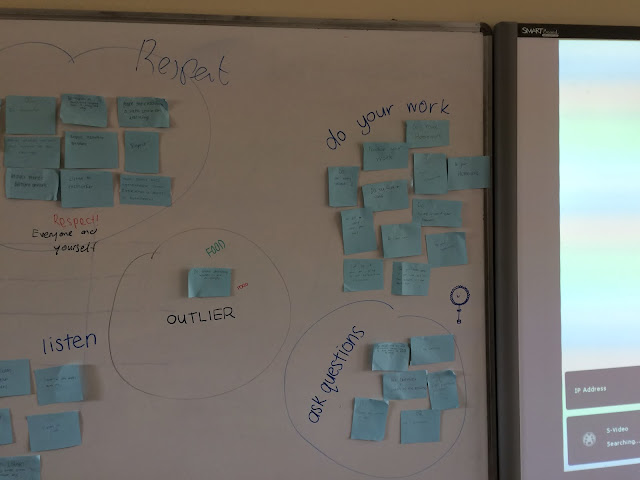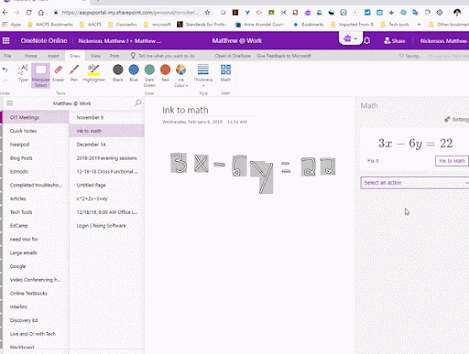Finding Literature for Research
Introduction
I decided to do this post, as I am busying completing my minor dissertation and one of the key skills I am needing to upgrade is my ability to find useful, credible and relevant academic literature for my research area. As I have dug deeper into the problem, it was interesting to see how many different approaches there were and how the skill is a strange mix of being systematic and creative at the same time. I also had a friend who is an experienced academic who made some very helpful videos on the topic and so I have included them in this post too.Charting a Path
The world's knowledge, whilst mostly converted into digital form these days, is still really spread out amongst a varied collection of sources. These sources comprise things like open source repositories, university libraries, private databases, journal articles, ... etc. Access to these sources or repositories is not always free and even when you do manage to get access through a university login or similar, the process of finding relevant literature that holds relevant knowledge, is still a surprisingly manual process.A side note for those new to academia, literature is a just the word for writing that has value, normally because of the credibility of the source from which it is coming. A lot of older literature is freely available and can be found and downloaded using things like the free tool, Google Scholar. In order to begin your search it's really helpful to consider the following as a starting point.
- Define a list of relevant search terms for your Research Area (these will evolve)
- Decide on a fixed list of sources you are going to search with these search terms
- Store what you found in a place that is easy to retrieve and easy to categorise
- Make summaries of what you have found for easy review later
One Possible Technique
A really interesting article I came across in my reading was, HOW TO BECOME A LITERATURE SEARCHING NINJA. It was useful for the the concrete strategies it offered to be both systematic and creative when searching for knowledge in literature.
The main thing that stood out for me was the idea of starting with a Concept Map & Research Question followed by 3 branches made up of sub-questions. As per the article, "Sub-questions are questions that would have to be answered as part of answering the larger question".
Then you need to make some educated guesses to begin to expand the branches of the sub-questions with topics. A good question to ask yourself is, if the articles I was looking for were in a library, what would the label on the shelf say? This should then generate 3 topic areas for each sub-question. Each of these topic areas would have a different purpose. Normally you would have a background topic, an obvious topic and a go-fishing topic.
As you then go on to search with these topics as search terms, an important thing to look out for is the number of citations for literature that turn up. This gives you some indication of the impact of that literature on the field. Also keep a lookout for literature reviews, if you can find ones close enough to the area you are researching, it could save you a lot of time and manual searching.
The main thing that stood out for me was the idea of starting with a Concept Map & Research Question followed by 3 branches made up of sub-questions. As per the article, "Sub-questions are questions that would have to be answered as part of answering the larger question".
Then you need to make some educated guesses to begin to expand the branches of the sub-questions with topics. A good question to ask yourself is, if the articles I was looking for were in a library, what would the label on the shelf say? This should then generate 3 topic areas for each sub-question. Each of these topic areas would have a different purpose. Normally you would have a background topic, an obvious topic and a go-fishing topic.
As you then go on to search with these topics as search terms, an important thing to look out for is the number of citations for literature that turn up. This gives you some indication of the impact of that literature on the field. Also keep a lookout for literature reviews, if you can find ones close enough to the area you are researching, it could save you a lot of time and manual searching.
A list of sub-skills you need to develop
Here are list of things that I have needed to master over the last while. Thanks Yolandi for these great videos as introductions.- Understanding Library Basics
- Using Google Scholar and Wikipedia as starting points
- Using Boolean Operators
Thats all for now, time to go and put these strategies into Practise in my Research!




Comments
Post a Comment